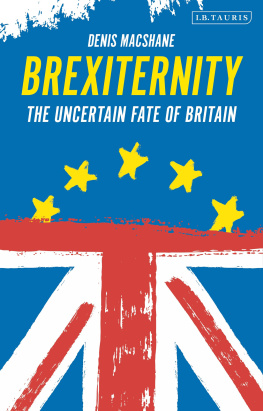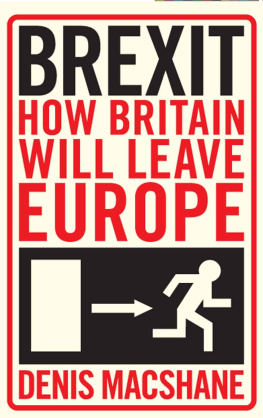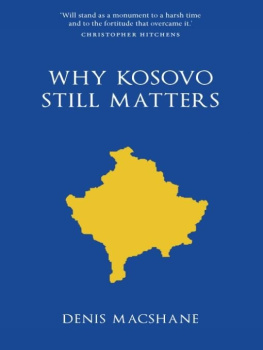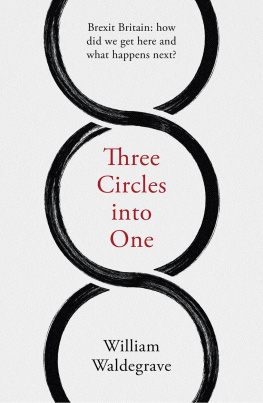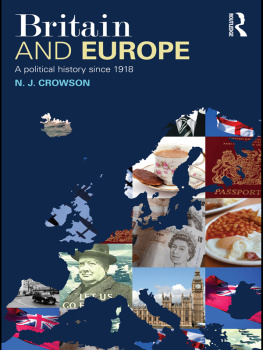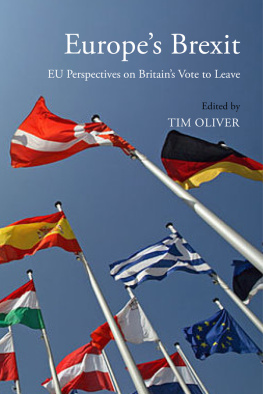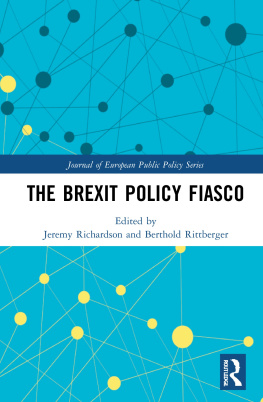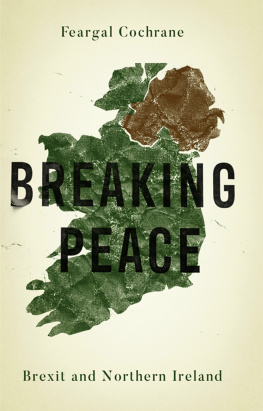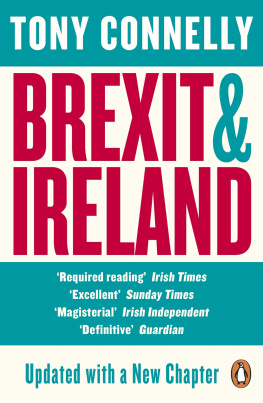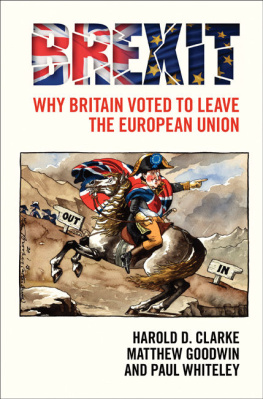INTRODUCTION
Brexit England is a changed country. Far from ending in 2019, Brexit is only just getting under way. The vote of mainly Englishmen and women in June 2016 was not Brexit. Nor was the proposed mini-treaty known as the withdrawal agreement and political declaration of November 2018, which was repeatedly rejected by MPs and public opinion in 2019.
This is the beginning of Brexeternity. The corrupted 2016 campaign of lies and disinformation the culmination of a 20 year long anti-European ideological project is just the prologue. Brexit will unfold over the coming years, if not decades. The Brexit revolution has already devoured two prime ministers. Boris Johnson, the new prime minister, faces exactly the same problems that David Cameron and Theresa May faced. His temporary suspension of Parliaments right to scrutinise the government was a sign of political fear not confidence. Johnson like his predecessors is unwilling to tell the truth to Britain about Europe. They went along with the populist hostility to European partnership that year by year in the 21st century rose from the deep bowels of the Tory Party where it had long been present but not determinant in the partys identity and ideology..
Now the government, other political forces, economic actors, journalists, opinion and policy shapers and all of Britains allies, partners, rivals, friends and foes have to face up to Brexiternity. The era of Brexit that began in January 2013 when David Cameron announced his referendum and ended with the election of Boris Johnson as prime minister is closed. A new era of Brexiternity opens. It encompasses all the decisions that Britain will now take on how to interpret the June 2016 plebiscite decisions, on how and if a fresh democratic decision can be taken, on what will be the outcome of either a total amputation from commercial and citizens exchanges with other European nations or years and years of negotiations to establish a new legal relationship between the UK and the EU.
In 2015, Labour chose as its leader an MP who has never liked the European Union. Jeremy Corbyn voted against all its treaties since entering the Commons in 1983 on a Labour general election manifesto committed to pulling the UK out of Europe. The Labour opposition has been unable to define a convincing position on Brexit since 2016 and thus has not profited from a Tory prime minister and the Conservative government and party making themselves a national and global laughing stock. Labour says it will support staying in the EU and oppose any deal proposed by the Conservatives. But were Labour to win an election and form a government, Jeremy Corbyn would not necessarily call for a Yes vote to staying an EU member in any new referendum. Few could make sense of this ever-changing chameleon approach by Corbyn to Brexit. Voters certainly were unimpressed as Labour fell below the Liberal Democrats in the European Parliament election of May 2019. Some opinion polls showed the Liberal Democrats and Nigel Farages newly formed one-man Brexit Party coming ahead of Labour if a general election was held. Labour just scraped home in a by-election in Peterborough in June 2019, with the Brexit Party losing by a few hundred votes. But the Labour majority in Peterborough fell well below the same constituencys Labour vote in the general election two years previously.
Nine years into an unpopular Conservative government, this was a lamentable performance. Jeremy Corbyn had seen off two Tory prime ministers, but only 16 per cent of voters thought he would make a suitable prime minister. Brexit has thus reduced the leadership of the main political parties to a new low in British history.
In Brussels, a new European Union leadership team emerged, with strongly pro-European leaders taking over. The new president of the European Commission, Ursula von der Leyen, is an Anglophile German centre-right minister who went to the LSE and who has friends in London. But for her, Brexit is a burst bubble of hollow promises inflated by populists who had promised that Britain would benefit from Brexit. The fact is today that Brexit is a loss for everyone.
So we enter a Brexiternity of conflict, rows with our European neighbours, political divisions within as much as between parties. Friends and families are divided, as people close to each other voted differently in the referendum. Someone who was counting on retiring to Spain faced a brother or a daughter who had voted to abolish the EU citizenship rights that made this option free and easy. Colleagues at work in the private sector or in public service regarded each other suspiciously, as someone you thought you knew was revealed to have a deep dislike of a European Union you thought added value to the nation or vice versa.
Workers at Ford in Wales, Honda in Swindon, British Steel in Scunthorpe, Nissan in Sunderland faced losing their jobs as uncertainty over Brexit continued. Firms in the financial services sector in the City of London and elsewhere quietly relocated jobs to EU capitals in order to keep access to the EU single market. Two major internationally respected supervisory agencies based in London, the European Medicines Agency and the European Banking Authority, had to relocate to the continent. On the eve of one of the most anti-European politicians, Boris Johnson, entering Downing Street a report by the Governing Office of Budget Responsibility warned that UK public finances would take a 30 billion hit with state borrowing doubling under even a relatively benign no deal Brexit as favoured by Mr Johnson. The OBR said the UKs budget deficit would more than double putting pressure on financing core public services. Mr Johnson also insisted as part of his bid to persuade Conservative Party members to vote him into Downing Street that he supported the Nigel Farage call for a full No Deal amputation from the EU. The OBR said such a no-deal Brexit would bring about a full-blown recession shrinking the economy by 2 per cent, sending unemployment soaring and house prices down by 10 per cent.
There is now an open conflict between centuries of parliamentary representative democracy as the supreme mechanism of democratic rule in Britain and the different democracy of plebiscites. In truth, the two are not compatible. But neither will cede supremacy to the other hence the biggest-ever defeat for a serving prime minister and government early in 2019, when a majority of 230 MPs voted against Theresa Mays proposed deal to withdraw from the EU. This was followed by another defeat the following month on St Valentines Day, when the Commons refused to support her deal or her negotiating strategy by a 303258 vote.
The prime minister put in place after the 2016 plebiscite refused all compromise. It was the May Way or No Way and soon Mrs May was on the way out, with few mourning one of the worst-ever premierships in British political history.
Mrs May, her supporters and many journalists and voters castigated MPs for refusing to take clear decisions. This misunderstands the democratic process. Houses of Parliament, congresses, national assemblies, senates are not executive bodies. Their job is precisely to reflect, pause, consider, or demand changes in what the executive the government seeks to do. Far from Parliament being unable to decide, MPs did what they always should: they held the government to account and found it wanting. This will go on one way or another for some time, as Brexiternity sinks roots in Westminster.
Britain has no written constitution and no precedents for this stand-off between the democracy of the plebiscite and the democracy of an elected parliament. A new general election is almost certain to return another divided parliament and, in any event, clarifies nothing, as Brexiternity means there can be no closure on Britains relationship with Europe under todays generation of politicians and others who influence public opinion in England. The Scottish Nationalists will continue to insist on their secessionist agenda. And why shouldnt they, as English MPs have shown themselves incapable of handling the outcome of the Brexit plebiscite?

